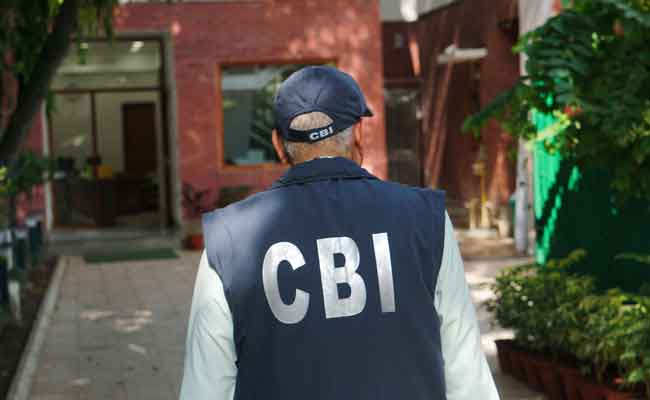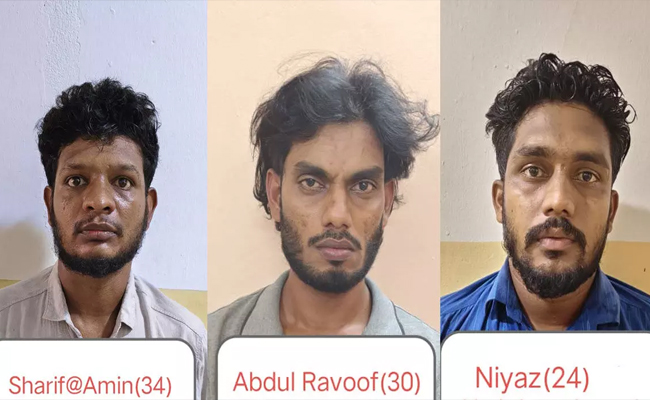New Delhi (PTI): R G Kar Medical College's former principal Sandip Ghosh was found to be "deceptive" while answering important questions on the rape and murder of a trainee woman postgraduate doctor during his polygraph test and layered voice analysis, officials said.
The CBI, probing the case, arrested Ghosh on September 2 in connection with financial irregularities at the hospital. The federal probe agency later added charges of evidence tampering against him.
During the investigation, Ghosh was subjected to layered voice analysis and polygraph test.
According to a report from Central Forensic Science Laboratory (CFSL), New Delhi, his version has been found to be "deceptive on certain important issues" relating to this case, officials in the know of the developments said.
Information revealed during the polygraph test may not be used as evidence during the trial but the agency may gather corroborative evidence which could be used in court, they said.
A polygraph test can help in assessing inaccuracies in the statements of suspects and witnesses. By monitoring their psychological responses, heart rate, breathing pattern, sweating and blood pressure, investigators can determine if there are discrepancies in their responses.
The CBI has alleged that Ghosh got information about the rape and murder of the trainee doctor at 9.58 am on August 9 but he did not make the police complaint immediately.
He allegedly made a "vague complaint" at a later stage through the medical superintendent-vice principal even though the victim was declared dead at 12.44 pm, they said.
"He did not try to get an FIR lodged immediately. Rather a new theory of suicide was introduced which is not possible as per external injury visible on the body of the victim that was undressed at the lower part," the CBI has alleged.
The probe agency has alleged that Ghosh got in touch with Tala Police Station's Officer In Charge (OC) Abhijit Mondal at 10.03 am and with an advocate at 1.40 PM while a case of unnatural death was registered at 11.30 pm.
Mondal, who has also been arrested by CBI in connection with the case, received information of the incident at 10.03 am on August 9 but did not reach the scene of the crime immediately, the officials claimed, adding the OC reached the spot after an hour.
The general diary entry 542 mentioned that the body of the PG trainee of RG Kar Medical College and Hospital was found lying in an "unconscious state" in the seminar room of chest medicine, whereas the body was already examined by a doctor who had found the victim dead.
The general diary entry was allegedly made "in conspiracy with hospital authorities and other unknown persons", intentionally mentioning wrong details.
Mondal's failure to register an FIR and protect the scene of crime resulted in the "damage of vital evidence available at the crime scene", officials said, adding he tried to protect the accused Sanjay Roy and others who had unauthorised access to the scene of crime that might have led to tampering of evidence.
Ghosh allegedly directed subordinates to send the body to the morgue hurriedly, they said.
The trainee doctor was allegedly raped and murdered in the seminar hall of R G Kar Medical College and Hospital when she had gone to rest during her shift in the early hours of August 9. Her body with severe injury marks was found in the hall by a doctor who was on rounds.
Sanjay Roy, a police volunteer, was arrested the next day based on CCTV footage in which he was seen entering the seminar hall at 4.03 am on the day of the incident.
On August 13, the Calcutta High Court ordered the transfer of the probe from the Kolkata Police to the CBI, which took over the case on August 14.
Let the Truth be known. If you read VB and like VB, please be a VB Supporter and Help us deliver the Truth to one and all.
Mumbai (PTI): Six major domestic airlines have employed 13,989 pilots, with Air India and its low-cost arm, Air India Express, having 6,350 and 1,592 pilots respectively and IndiGo having 5,085 cockpit crew, Parliament was informed on Monday.
The number of pilots at Akasa is 466 and at SpiceJet, it is 385, Minister of State for Civil Aviation Murlidhar Mohol said in a written reply to a question in the Rajya Sabha.
The government-run Alliance Air has employed 111 pilots, he added.
The minister said the rate of employment among qualified pilots is dependent on market forces.
ALSO READ: Trainer aircraft crashes after hitting power line in MP's Seoni; pilot, instructor injured
He said the rationale behind airlines hiring foreign pilots, inter alia, is the requirement of a specific type-rated pilot in light of fleet expansions and time-bound operational requirements.
Mohol also said the flying training organisations (FTOs) are continuously upgrading their aircraft fleet by regularly inducting training aircraft fleets.
The Directorate General of Civil Aviation (DGCA) has facilitated the induction of 61 training aircraft by FTOs till November, he said, adding that the civil aviation regulator has approved two FTOs in 2025.
As of November 2025, India has 40 FTOs operating across 62 bases, Mohol said.
He said the modernisation of flying-training infrastructure is market dependent and undertaken on the basis of the commercial consideration of the FTOs, adding that the civil aviation ministry currently has no intervention in the same.
"However, India being an ICAO member, DGCA aligns its training and regulatory framework to ICAO's Standards and Recommended Practices (SARPs). DGCA regularly assesses the quality and adequacy of flying training through robust regulatory framework," Mohol said.
A continued review of safety standards is undertaken during the surveillance of these FTOs, in accordance with the published Annual Surveillance Plan of the DGCA, the minister said. Special safety audits and spot checks are also carried out as and when needed, he added.





